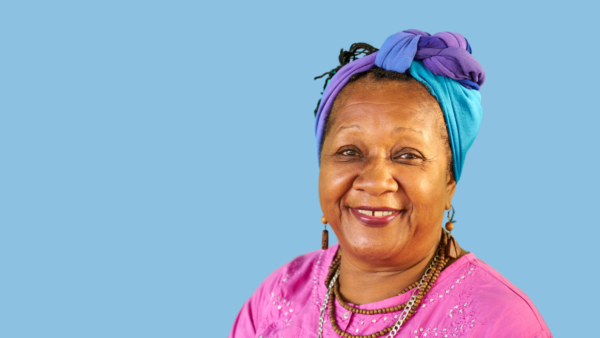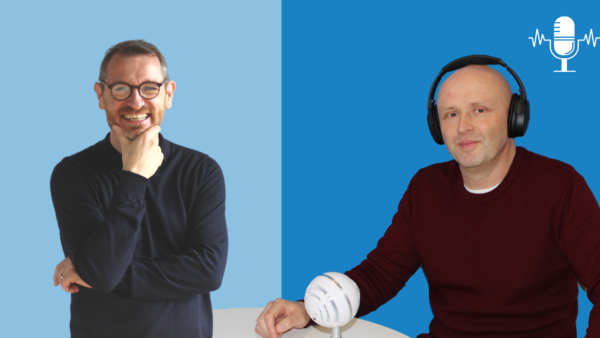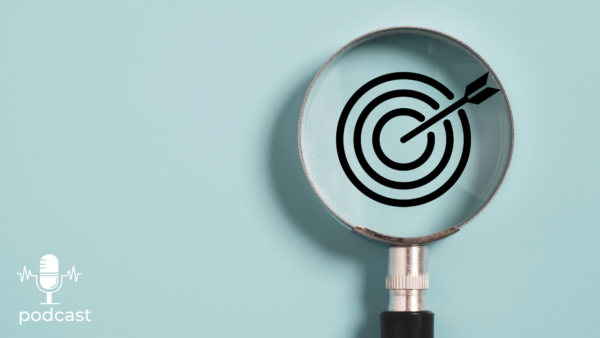In several of my podcasts, where I’m offering tips for getting more from life or work, I mention meditation as an option to try. Beating the winter blues, coping with interruptions, ways to stay positive and how to do the holiday transition – meditation gets a namecheck in all of them. So I want to focus today on my own story with meditation – how I’ve found it’s helped me in ways I definitely didn’t expect and also what it’s not. And I’m going to give you some thoughts on how to try it if you want to.
My name’s Dr Paul Brewerton – the strengths guy – I podcast each week on strengths, work and life in no particular order. Today is meditation so it’s a whole life kind of vibe, which means work is a definite area of application too. Ok, lots to cover, let’s go.
So my story with meditation started probably about 10 years ago when I got involved in a research project with a major UK bank (with a Spanish name), when the whole well-being agenda was just kicking off, and we did a piece of work looking at the potential benefits of relaxation and also meditation vs not doing either, on a regular basis.
 The benefits of meditation
The benefits of meditation
It was a 45 day project and participants were asked to journal details about their well-being at various points, as they either just carried on as normal, or took a set amount of time to relax each day, or did a meditation practice each day. Really interesting project to be part of, we found there were lots of well-being benefits to both relaxation and meditation, including in particular for meditation lowered stress, improved relationships and better focus at work.
You’d think that by seeing those results – like actual evidence that it’s beneficial – that I might want to start meditating, right? Nope, I guess I must have felt I was unstressed and focused enough and my relationships were all good thanks. Plus as I remember, the practice being taught to participants was transcendental meditation and I was concerned about candles and cross-legged chanting and other assorted weirdness. So I didn’t jump in and to be honest, pretty much forgot about meditation as a thing relevant to me.
But…about 5 years ago now, I found that I was getting a bit stressed at work and taking that home with me wasn’t good for anyone – my partner and two young kids didn’t need me being irritable or tetchy and I didn’t want to be that either. So that was my trigger really for looking at what was out there that might help. I’ve talked about our strengths assessment tool, Strengthscope, before and I know that I don’t have an Emotional control strength, in fact it’s draining for me to control my emotions, but I realised that it wasn’t ok to be so uncontrolled as it was starting to affect the people that mattered most to me.
Headspace meditation app
Anyway, I must have read an article or something about this new app called Headspace which I tried for free and I was fairly meh about it initially but when it came to the end of the free trial, I decided to pay for the year, so I guess I’d kind of made a commitment. And then I started using it more regularly. So I did a daily routine, usually at home in the quiet, I used to put a sign on the door so I didn’t get disturbed and would do my thing. It probably looked pretty selfish that I was carving out ‘me’ time when we had small kids to entertain but it felt important for me to do it and it wasn’t much of a time commitment. So I carried on.
Anyway, this app Headspace had lots of ‘pure’ meditation practice-building content as well as more specific meditations for stress, anxiety, focus, appreciation, relationships, all sorts. I’d paid my subscription right and I was going to do all of them. And I did. I’m not sure how long that all took but maybe 3 or 4 months, every day as much as possible, with the time spent meditating increasing from 10 minutes at the start to 30-40 minutes. Couple of words on the practice that Headspace taught me (which is still what I do today) – sit on a chair, in a relaxed position, deep breathe and close your eyes after a few deep breaths. Feel where your body is in contact with the chair and floor and then scan down your body from head to feet, letting go of any tension points if you find them.
Once the scan is complete, focus in on your breath, just your breath, not forcing it, not altering it, just noticing it and keep doing that. If you lose focus, if thoughts creep in and distract you, which they will, don’t worry about it, just come back to your breath and keep focusing. After however long (5, 10, 20, 30 mins), start to sense the world around you again and when you’re ready, open your eyes and look around and feel how you feel. That’s it, then move on with your day, but being more aware of your body, your breath, and everything around you. Done, simple right? And I still don’t know the technical aspects of what I’m doing with that routine – the neuroscience or the physical part or the ancient practices behind it or anything much, because I just accepted it all.
And as I say, that’s still my meditation practice now. I do it mostly on the train on the way to work as part of my commute routine. Not ideal in terms of getting jogged about a lot but I use that as a challenge to stay focused.
So what did I notice after that few months of habit building around breathing? I was definitely more relaxed generally, less tense. I was more aware of my emotions in the moment and felt better able to move away from spark points if I found I was getting into a disagreement or argument. At work, in tricky meetings, breathing helped me get calm quicker and think objectively more easily. It was easier to get perspective on things quickly I guess because meditation teaches you to let go and not fixate. And I found I could shift emotional state more quickly and focus on what I wanted to do rather than getting distracted.
Meditation and strengths
And as the years have gone by I’ve found other benefits have started to happen: I have a tendency for my Critical thinking strength sometimes to go into overdrive so I can get stuck on difficult to solve problems which don’t have an easy solution, but I now find I can shift to my Strategic mindedness and Optimism strengths more easily which helps me let go of unsolvable stuff. I feel I’m more aware of everything around me, not rushing through life but more open to new experiences, tastes, sounds, sights – basically, better mindfulness, which is really a natural offshoot of meditation.
Oh and the last thing is that sometimes on my morning commute meditation I have a double espresso just before I start, which means that I’m into my focused breathing at the same time as the caffeine kicks in. And every now and again I get these creative insights or ideas to do with work or life which are just next level.
Before this goes fully into a poster boy meditation ad campaign, let’s talk about some of the things that I thought meditation was that got in the way of me trying it, but actually when I got into it, I realised it wasn’t that at all. So here’s a list (and by the way, meditation can involve all of the following if you like, it’s just that it can be totally you-shaped so doesn’t have to be any of them): sitting in a cross-legged position, chanting om with your thumb and index-finger touching, candles, groups, incense, faith-based, sitting for hours and hours, weird language, or following a particular super-disciplined practice. You can have any or all of that if you want but you don’t have to.
I have a meditation mentor now (guru if you like) and I have a mantra (which is like a non word that you have zero attachment to which can help you focus, that I sometimes use) but the main thing is that if you’re going to do meditation, keep doing it, but don’t beat yourself up if you miss a few, just keep up the habit. That’s it. And how to get started? Well I’ve totally oversold Headspace to about 10,000 people over the past 5 years and I haven’t even used it for 3 of those, although I hear it’s way better now than it used to be.
Other apps are Buddhify, which has got lots of mini specific meditations for travelling and stress-busting and stuff, but there are plenty of others – Calm is pretty popular but I haven’t used it, although just downloaded for a month’s free trial so I’ll give it a go over the next few weeks. I could say more but that feels like enough to give you a flavour of my experience of meditation, as a total non-expert, what it is and what it isn’t. I would recommend it to anyone and it isn’t hard to do, it just takes practice to get it to become a habit. My advice, give it a month or two on an app of your choosing and see what it gives you. Till next time.
Did you know this blog is also available as a podcast along with some other incredible content? Check it out on Apple Podcasts, Spotify, Google Podcasts, Soundcloud, Acast, and Stitcher











